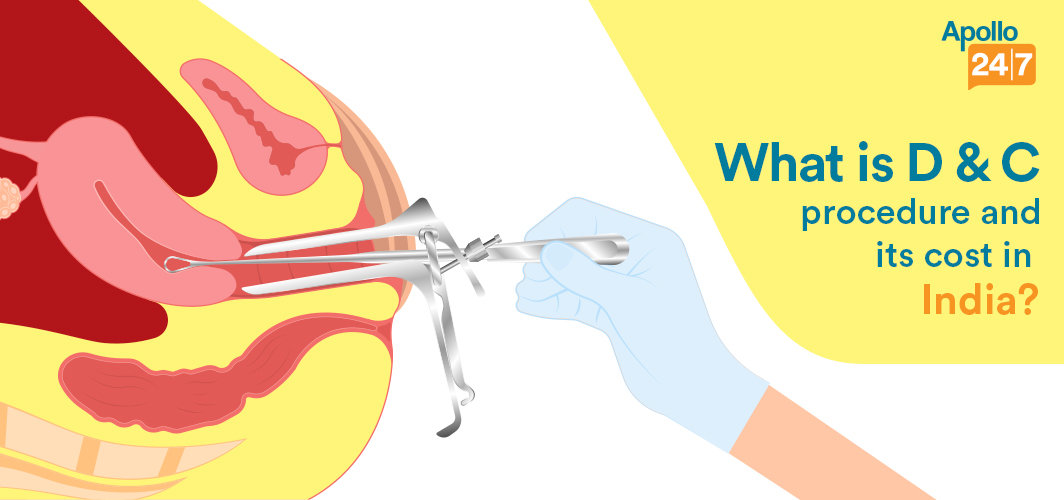- Home
- Blog
- Women Care
Can Hypothyroidism Affect Your Chances Of Getting Pregnant?
Women Care
Can Hypothyroidism Affect Your Chances Of Getting Pregnant?
By Apollo 24|7, Published on- 12 June 2023, Updated on -30 September 2023
Share this article
0
1 like

The butterfly-shaped thyroid gland, located in the front of your neck, produces hormones that regulate metabolism and impact crucial bodily functions. Hypothyroidism, characterized by an underactive thyroid, occurs when the gland fails to produce sufficient hormones to meet the body's needs. Insufficient thyroid hormone levels can profoundly impact all organs, including the reproductive system, potentially making conception challenging. Many women experience fertility issues due to hypothyroidism, and understanding the connection between low thyroid hormone levels and reproductive health is crucial for those seeking to conceive and have a successful pregnancy.
How Does Hypothyroidism Affect the Chances of Conceiving?
Low levels of thyroid hormones can significantly impact various aspects of ovulation and menstruation.
- Women with hypothyroidism may experience heavier and longer periods, potentially leading to anaemia, or their periods may become irregular or cease altogether.
- Insufficient levels of thyroxine (T4) or elevated thyroid-releasing hormone (TRH) can result in elevated prolactin levels, which can interfere with the release of eggs during ovulation or cause irregular egg release, making conception challenging.
- Hypothyroidism can lead to a shortened second half of your menstrual cycle, preventing sufficient time for a fertilised egg to implant in the uterus.
- Elevated thyroid peroxidase (TPO) antibodies, low basal body temperature, and the formation of ovarian cysts can further contribute to pregnancy loss or difficulties in achieving pregnancy.
Know your thyroid hormone levels with, Apollo’s Thyroid Assessment Test
How Does Hypothyroidism Affect a Pregnancy?
During pregnancy, the demand for thyroid hormones increases to support both the mother and the developing baby. In most cases, mildly low thyroid hormone levels do not pose significant risks to the foetus or the pregnancy. However, severe hypothyroidism can lead to various adverse outcomes, including foetal death and miscarriage. It is crucial for your doctor to carefully manage and treat your hypothyroidism during pregnancy. Failure to control the condition adequately may result in complications such as:
- Maternal anaemia
- Elevated maternal blood pressure
- Stillbirth or miscarriage
- Low birth weight of the infant
- Bleeding
- Premature birth
- Placental abruption
Unmanaged symptoms can also negatively affect the baby's brain development and growth.
What Can Cause the Development of Hypothyroidism During Pregnancy?
During pregnancy, the body's demand for thyroid hormone increases to support the growing baby. This can make signs of hypothyroidism more likely, especially for those with a history of the condition. If you have been receiving treatment for hypothyroidism before conceiving, your medication may not be sufficient to meet the increased needs during pregnancy. Studies indicate that many individuals require a 25% to 50% higher dosage when they conceive.
If you have a history of hypothyroidism before becoming pregnant, your doctor will monitor your hormone levels all through your pregnancy and make necessary adjustments to your thyroid medication to ensure optimal thyroid function. Regular monitoring and medication adjustments are essential for maintaining thyroid hormone levels within the appropriate range throughout the gestation period.
There are several risk factors associated with hypothyroidism, including:
- Family history: If one of your close relatives, such as parents, siblings, or grandparents, has hypothyroidism, your chances of developing it are higher.
- Enlarged thyroid (goitre): An overactive thyroid gland can lead to an enlarged thyroid. Over time, the gland may struggle to maintain adequate hormone production, resulting in hypothyroidism.
- Autoimmune disease: Conditions like rheumatoid arthritis, Type 1 diabetes, and celiac disease increase the risk of developing autoimmune thyroid disease, specifically Hashimoto's thyroiditis, which can lead to hypothyroidism.
- Radiation exposure: Radiation treatment for head and neck cancers can unintentionally damage the thyroid gland, increasing the risk of hypothyroidism.
- Iodine deficiency: The thyroid gland requires iodine to produce thyroid hormone. Inadequate iodine intake can lead to low thyroid hormone levels. Avoiding iodine-rich foods and salt may increase the risk, particularly during pregnancy.
How to manage thyroid during pregnancy?
Apart from taking daily medications, these are certain things you can do in order to maintain thyroid levels during pregnancy:
1. Minimize stress
Elevated stress levels can hinder the release of hormones from the thyroid gland as stress triggers increased production of cortisol. Consequently, increasing the risk of developing hypothyroidism.
2. Boost physical activity
Engaging in exercises and yoga can raise thyroid hormone levels in the body and facilitate better hormone absorption.
3. Adopt a healthy diet
To reduce the likelihood of thyroid disease, it is advisable to steer clear of sugar, refined grains, and caffeine.
4. Enhance iodine intake
Inadequate iodine levels may contribute to goitre. During pregnancy, it is especially important for expectant mothers to consume iodine-rich foods such as fish and dairy products, and take the iodine supplements prescribed by their doctor.
Takeaway
Pregnant women with hypothyroidism should get their thyroid levels monitored regularly. They can have a successful pregnancy and a healthy baby with the necessary treatment. It's crucial not to adjust your medication dosage without guidance from your healthcare provider. Additionally, if you receive a diagnosis of hypothyroidism during pregnancy, you may consider consulting an endocrine specialist endocrinologist for specialised care.
FAQs
Q. How to control thyroid in pregnancy?
Managing thyroid disorders during pregnancy involves close monitoring and appropriate medical care to minimize potential risks to both the mother and the baby. It typically includes regular thyroid function testing to ensure thyroid hormone levels are within the optimal range. Medication adjustments, if needed, are made to maintain stable thyroid function.
Q. How can thyroid disorders in the mother affect the unborn child?
Untreated or poorly managed thyroid disorders during pregnancy can increase the risk of complications, including premature birth, low birth weight, developmental issues, and cognitive impairments in the child.
Q. How do low thyroid levels impact the chances of conceiving?
Low thyroid levels can disrupt hormonal balance, leading to irregular menstrual cycles, anovulation (no ovulation), and reduced fertility, decreasing the chances of conceiving.
Q. Are there any specific thyroid tests recommended for women trying to conceive?
Recommended thyroid tests for women trying to conceive include measuring TSH and FT4 levels to assess thyroid function and detect any disorders affecting fertility.
Q. How to treat thyroid disorder to increase the chances of getting pregnant?
Treating thyroid disorders involves synthetic hormone replacement medication, such as levothyroxine, to restore optimal thyroid hormone levels and improve fertility. Close monitoring by a healthcare professional is essential for maintaining stable thyroid function and increasing the chances of getting pregnant.
Medically reviewed by Dr Sonia Bhatt.
Services
Women Care
Leave Comment
Services
Recommended for you

Women Care
Third Trimester Diet: Here’s What To Eat And What To Avoid
It's essential to meet your daily nutritional needs during the third trimester of your pregnancy to ensure the proper growth and development of your child. Here is a list of foods that you should eat and avoid during this crucial period of your pregnancy.

Women Care
Have You Missed Your Periods Lately? These Can Be The Reasons!
While several reasons can result in missed periods, the major ones include stress, pregnancy, hormonal changes, and lifestyle choices. Leading a healthy lifestyle and timely consultations with a gynaecologist can help in ensuring a steady menstrual cycle.

Women Care
D and C Procedure: What is it and its Cost in India?
D and C is the abbreviated form of Dilation and Curettage. It helps in detecting the reason or cause of heavy bleeding and removal of uterus lining during or after a miscarriage. Know more about D and C by reading this article.
Subscribe
Sign up for our free Health Library Daily Newsletter
Get doctor-approved health tips, news, and more.

